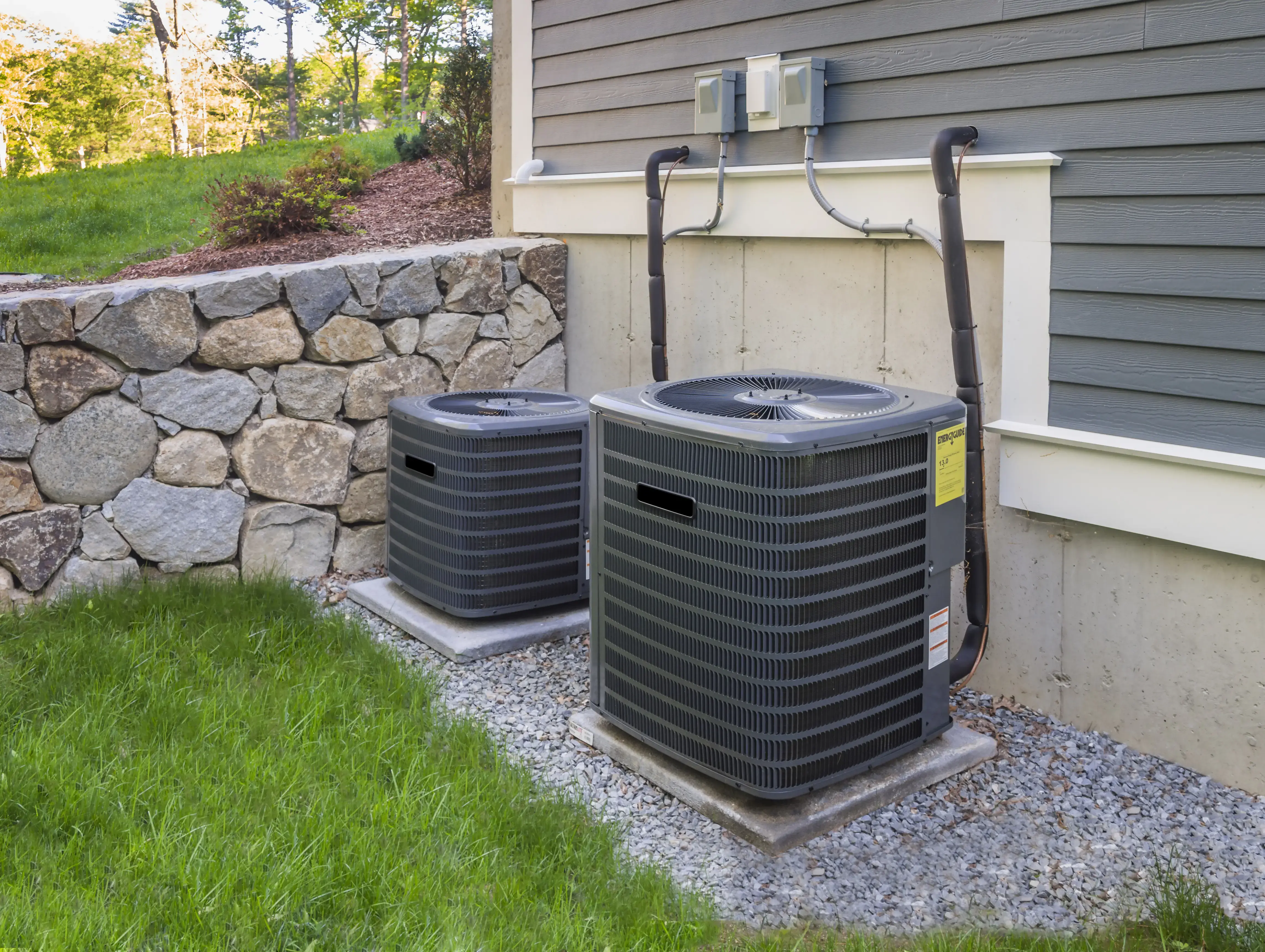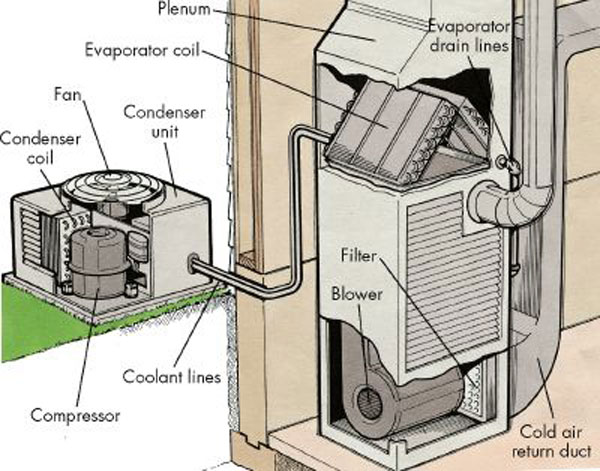Comprehending the Different Types of Cooling And Heating System for Optimum Efficiency
Understanding the various kinds of HVAC systems is important for property owners aiming to enhance comfort and energy effectiveness. Central air systems offer uniform temperature control, while ductless mini-split systems offer flexibility. Warmth pumps supply reliable year-round environment monitoring. For smaller sized areas, window and portable ac system serve as practical remedies. Geothermal systems use consistent below ground temperature levels for lasting heating & cooling. Each choice holds special benefits, prompting a better assessment of which might match individual requirements best.
Air Conditioning Solutions
Although lots of property owners seek means to enhance interior convenience, understanding central air systems is important for reliable environment control. Air conditioning operates by flowing amazing air via a system of ducts, distributing it uniformly throughout the home. This type of system is composed of several crucial components, including an exterior compressor, an indoor evaporator coil, and a network of ductwork.
The compressor cools cooling agent, which then absorbs warm from interior air as it passes through the evaporator coil. This cooled air is pressed through the ducts and right into living spaces, ensuring a constant temperature level. Central air systems are recognized for their efficiency, commonly utilizing programmable thermostats to enhance power use. Regular maintenance, such as filter modifications and system checks, is essential to guarantee durability and efficiency. Recognizing these components assists home owners make informed decisions pertaining to installation and upkeep, eventually boosting comfort and energy performance in their homes.

Ductless Mini-Split Equipments
Ductless mini-split systems provide a versatile option to standard air conditioning, dealing with homeowners seeking efficient climate control without the requirement for extensive ductwork. These systems include an exterior compressor device and one or even more interior air-handling devices, permitting targeted air conditioning and home heating in details areas or spaces. This zoning capacity boosts convenience by allowing individuals to change temperatures based on individual preferences, ultimately resulting in energy savings.
Installation is generally less complex and much less intrusive compared to ducted systems, which can be helpful for older homes or areas with restricted structural modifications. Additionally, ductless mini-split systems often include energy-efficient modern technologies, such as inverter-driven compressors, which enhance energy intake based upon demand. Their compact style likewise enables numerous placement options, making them suitable for tight or unusual areas. Because of this, ductless mini-split systems have gained appeal among homeowners trying to find modern, effective heating and cooling solutions.
Heat Pumps
Heatpump represent an energy-efficient and flexible option for both heating and cooling domestic rooms. These systems operate by moving heat as opposed to generating it, making them especially effective in moderate environments. Throughout warmer months, warm pumps extract heat from indoors and launch it outside, supplying air conditioning. Alternatively, in winter season, they reverse this procedure, attracting warm from the outdoors air or ground to warm the interior.
There are 2 primary kinds of heatpump: air-source and ground-source (or geothermal) Air-source heatpump are extra common because of their easier installment and lower initial price, while ground-source models boast greater performance and security in performance. Additionally, warm pumps can significantly lower power bills and carbon footprints when compared to typical heating methods, making them a green selection. Overall, heat pumps stand as a compelling option for property owners looking for reliable climate control throughout the year.
Window and Portable Air Conditioners

On the various other hand, mobile air conditioning unit provide versatility, as they can be quickly moved from space to space. These systems usually need a venting kit to exhaust hot air via a home window, yet they give a hassle-free alternative for short-lived cooling demands.
Both sorts of air conditioners are suitable for renters and those seeking to stay clear of extensive installment procedures. Individuals ought to think about elements such as BTU capacity, power performance rankings, and noise levels when choosing a system to assure peak efficiency for their particular room and cooling requirements.
Geothermal Heating and Cooling Solutions
As power effectiveness becomes increasingly crucial, geothermal heating & cooling systems have actually gained appeal for their sustainable approach to environment control. These systems utilize the stable temperatures located underground to provide home heating in winter and air conditioning in summer season. By taking advantage of the planet's natural thermal energy, geothermal systems substantially decrease dependence on fossil fuels and reduced energy costs.

Moreover, geothermal systems commonly require much less maintenance contrasted to conventional heating and cooling systems, causing long-lasting financial savings - HVAC experts. With increasing awareness of climate change, these systems stand for a forward-thinking remedy for those looking for reliable and green home heating and cooling options
Regularly Asked Inquiries
Exactly how Commonly Should I Service My Cooling And Heating System?
A/c systems must ideally be serviced two times a year, as soon as in the springtime and when in the fall. Routine upkeep helps assure efficiency, extends life expectancy, and protects against expensive malfunctions throughout optimal use periods.
What Dimension Cooling And Heating System Do I Required for My Home?
Determining the suitable size for an a/c system calls for computing the home's square video, insulation high quality, and environment. An expert evaluation assurances maximum efficiency, convenience, and power financial savings customized to the certain requirements of the home.
Can I Install a Heating And Cooling System Myself?
Installing a HVAC system individually is feasible, however it needs technical expertise and abilities. Errors can cause ineffectiveness or safety and security threats, so consulting a specialist is usually advised to ensure proper installment and conformity with policies.
What Are the Signs My HVAC System Demands Repair Work?
Signs that a cooling and heating system requires repair work include uncommon noises, irregular temperatures, increased power bills, undesirable odors, and constant cycling. Motivate interest to these indicators can stop more damage and warranty height system performance.
Just How Can I Enhance My cooling and heating System's Energy Performance?
To enhance HVAC power efficiency, one must on a regular basis replace filters, seal air ducts, set up a programmable thermostat, guarantee correct insulation, and timetable regular upkeep checks. HVAC experts. These activities collectively improve performance while decreasing power usage and expenses
Central air conditioning systems supply consistent temperature level control, while ductless mini-split systems use versatility. Central air conditioning runs by circulating trendy air through a system of air ducts, dispersing it uniformly throughout the home. Central air conditioning systems are recognized for more info their efficiency, frequently making use of programmable thermostats to optimize energy usage. Ductless mini-split systems supply an adaptable alternative to standard main air conditioning, providing to house owners seeking effective climate control without the need for comprehensive ductwork. Geothermal systems normally need less upkeep contrasted to conventional Heating and cooling systems, resulting in lasting cost savings.